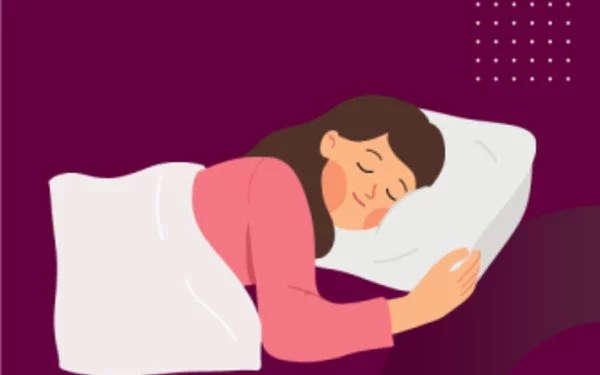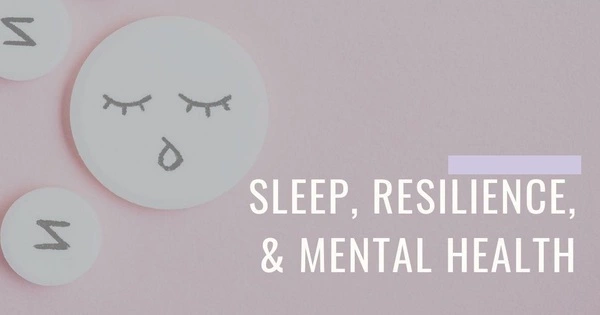High-quality sleep does play an important role in increasing resilience to depression and anxiety. The relationship between sleep and mental health is complicated, and research has consistently demonstrated that lack of sleep can contribute to the development and worsening of mood disorders such as sadness and anxiety. According to research, getting enough sleep can help you cope with depression and anxiety.
The study, led by researchers at the University of York, highlights that chronic stress is a major risk factor for a variety of mental health disorders, including depression and pathological anxiety, but that high-quality sleep and coping strategies, such as the ability to reframe a situation to see the positive side, can help to prevent poor mental health when faced with negative or stressful experiences.
The study looked at data from over 600 people during the COVID-19 epidemic in 2020, which was a long and difficult period. They wanted to see if coping skills helped with beneficial mental health outcomes, which might be boosted by getting enough sleep.
This is the first study to investigate the ways in which positive coping strategies and sleep quality influence depression and anxiety when experiencing a real-world chronic stressor. These findings highlight the importance of targeting both positive coping strategies and sleep quality when enduring periods of chronic stress.
Emma Sullivan
“Because the COVID-19 pandemic has been a prolonged period of stress for people all over the world,” said Emma Sullivan, PhD student in the Department of Psychology at the University of York, “it provided us with a unique context in which to address our research questions.”
“This is the first study to investigate the ways in which positive coping strategies and sleep quality influence depression and anxiety when experiencing a real-world chronic stressor. We found that better sleep quality was associated with fewer symptoms of both depression and anxiety during the initial months of the COVID-19 pandemic.
“These findings highlight the importance of targeting both positive coping strategies and sleep quality when enduring periods of chronic stress.”

The researchers examined data from the Boston College Daily Sleep and Well-being Survey, in which participants self-reported their sleep quality and mental well-being throughout the pandemic.
They also took a baseline demographic survey to find out their age, gender, and ethnicity. The surveys collected a multitude of additional information, such as participants’ alcohol use, quarantine status, and physical activity levels, in addition to information on participants’ sleep and mental well-being.
“We have known for a long time that high-quality sleep is associated with better health and wellbeing outcomes,” said Dr Scott Cairney, PhD supervisor on the project from the Department of Psychology at the University of York. “But we wanted to know whether this would change if sleep and coping strategies were put under intense and prolonged periods of stress, as it was for so many during the pandemic.”
“We found that sleep plays a hugely important role in the management of chronic stress and can sustain well-being over a long period of time, reducing symptoms of depression and anxiety.”
















